9 Warning Signs You’re Drinking Too Much Water

Have we reached peak hydration culture? It’s become totally normalized for people to walk around carrying giant tumblers of liquids (remember the Stanley cup craze?) but is it necessary, or even dangerous to be drinking this much water? “People have this fear that they’re always dehydrated or underhydrated and they need to fix that regularly,” Colleen Muñoz, director and co-founder of the Hydration Health Center at the University of Hartford, tells the Wall Street Journal. “That’s probably not usually the case.” So how do you know if you’re overdoing it with the water? Here’s what the experts have to say.
RELATED: Your Drinking Water May Have These “Shockingly Toxic” Chemicals, EPA Now Warns
1. Headache and Disorientation
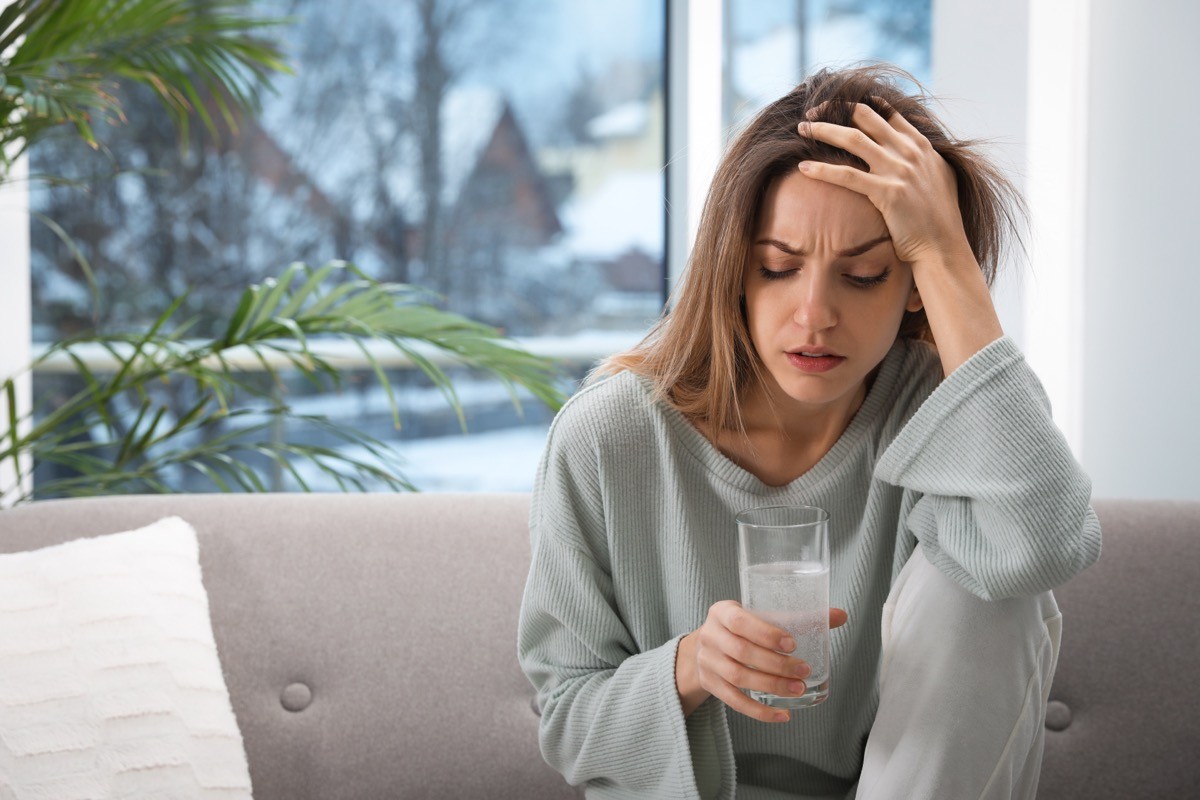
Severe water intoxication is dangerous and comes with alarming symptoms. “Water intoxication comes from drinking too much water,” nurse practitioner Elizabeth Clay tells OSF HealthCare. “And it can lead to some severe symptoms. You can get a headache, disorientation, confusion, nausea, vomiting – it can even be fatal.”
2. Blood Pressure
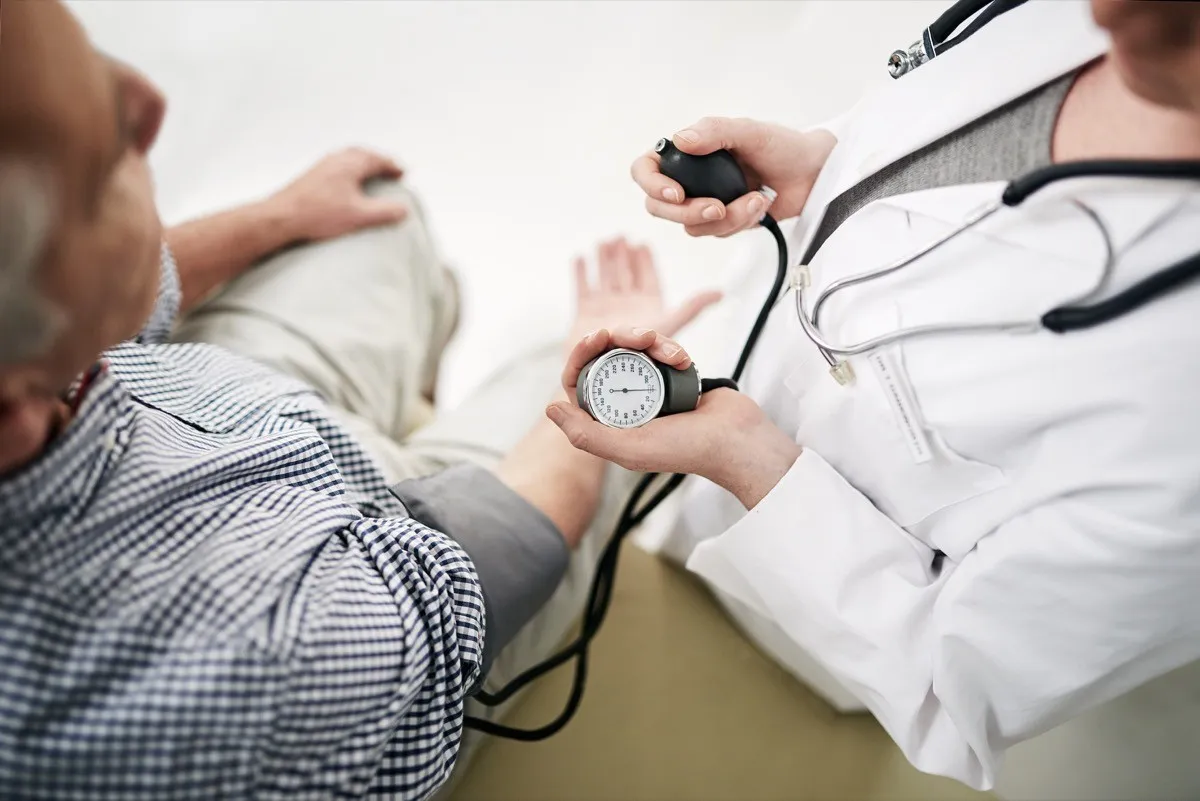
Muscle weakness, double vision, and a rise in blood pressure are also symptoms of water intoxication. “The amount of water that a person should consume is going to be individualized,” Clay says. “But overall, your kidneys can only handle so much. And that’s between 0.8 and one liter. So, you really don’t want to be taking in more than that per hour in water.”
3. Low Sodium

Drinking too much water can cause hyponatremia. “This is where sodium in the body is too low from excessive sodium loss in sweat or urine,” pediatrician and sports medicine specialist Jeffery Cline, MD, tells University of Utah Health. “Or it is diluted by taking in too much free water without any electrolytes.”
5. Nausea and Vomiting
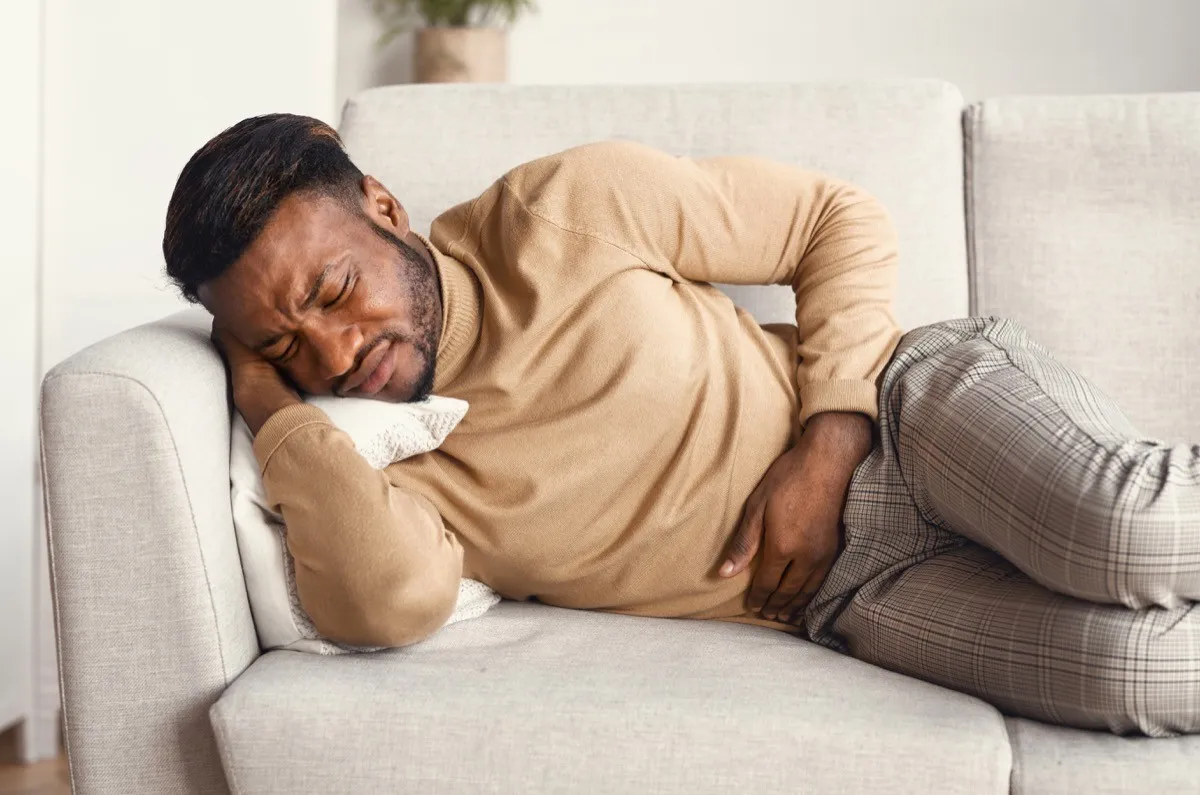
6. Dehydration and Intoxication

Be careful not to let dehydration lead to drinking too much water in a short amount of time. “Dehydration can play a major role in water intoxication because when a person feels that they’re getting dehydrated, they may try to overcompensate and may drink too much water at one time, and your body can’t handle that,” Clay says. “So, you’ll start to get these symptoms whether it’s nausea, vomiting, confusion – just disruption of your brain activity – and that comes from that depletion of sodium. And so, your cells inside your brain are holding on to that water and it causes swelling inside your brain and that can lead to some serious complications.”
7. Mental Confusion
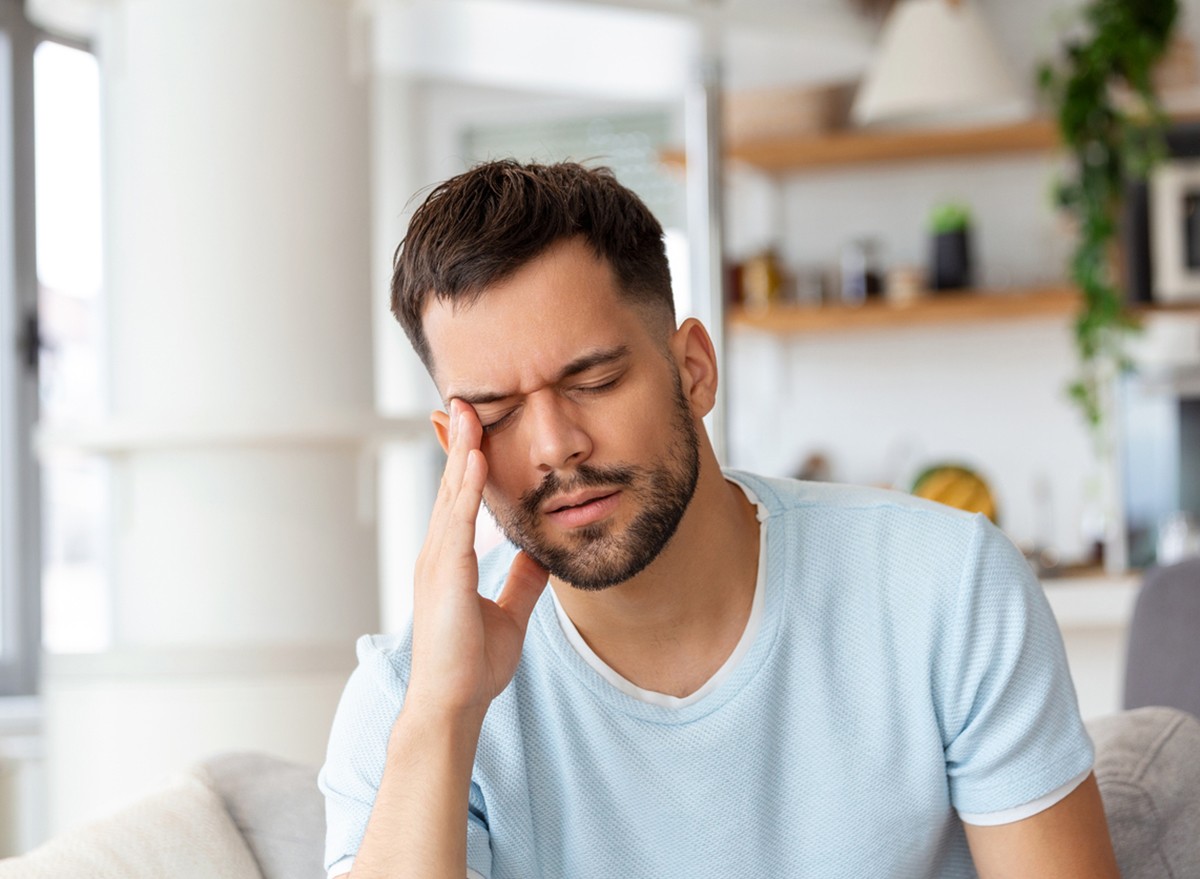
Mental confusion could be a sign of overhydration. “In severe cases symptoms could include mental confusion, seizures, unconsciousness and even coma,” says Gundersen Health. “The first treatment is to stop drinking fluids which will help someone recover in a few hours. However, with more severe symptoms, immediate medical attention may be necessary.”
8. Fatigue

Loss of energy, drowsiness, and fatigue are all possible symptoms of too much water, says the Mayo Clinic. “You may feel nauseous or sleepy, and you may develop vision problems, muscle cramps or elevated blood pressure levels,” Candacy George, D.O., tells ChristianaCare News. “In rare cases, overhydration may cause breathing difficulties, seizures and even death.”
9. How Much Water?
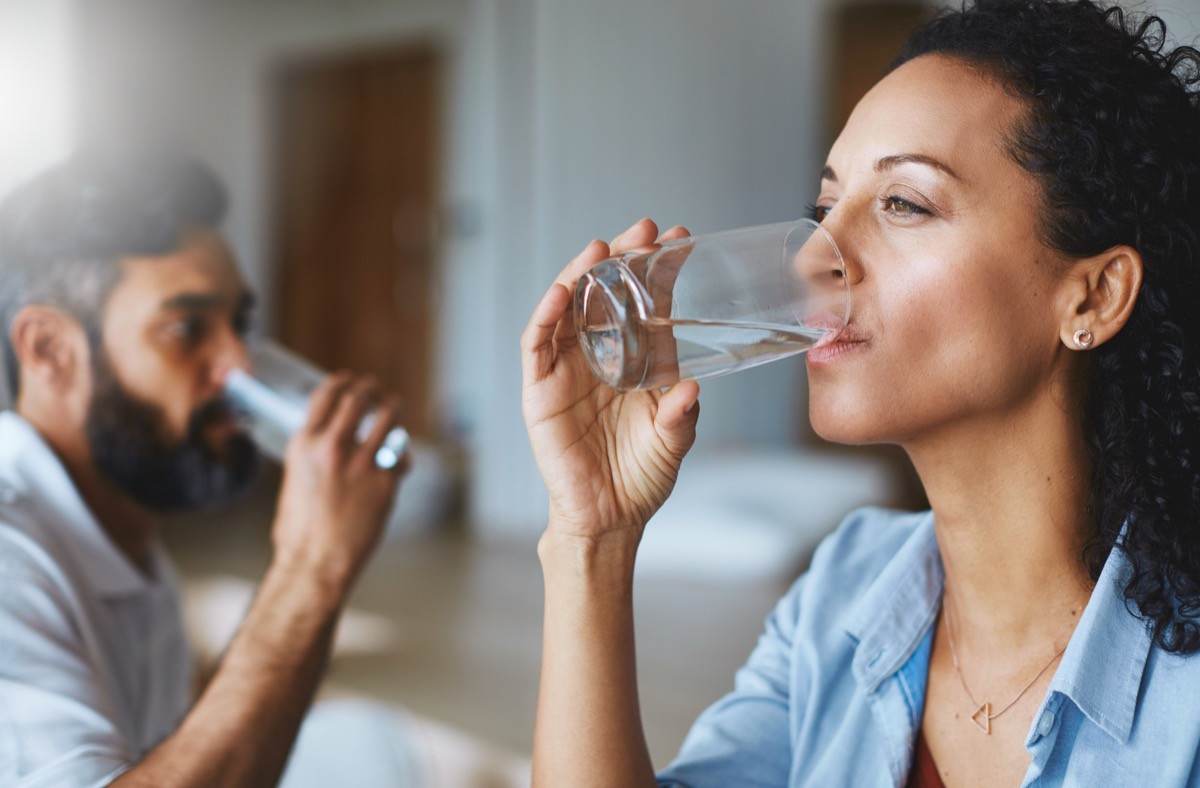
So how much should you drink? “Everyone has individualized hydration needs, but generally, women should drink 9 cups of water daily, and men should drink 13 cups, according to the National Academy of Medicine. Look at your urine to gauge how well you’re hydrating; it should be pale yellow. Darker urine may be a sign of dehydration. Clear urine, combined with excessive water intake, may suggest overhydration,” George says.